Gingerbread cookies are more than just a treat; they are a heartwarming blend of tradition, taste, and timelessness. Each bite transports you to a world of comforting spices and sweet delights. They echo memories of family gatherings, festive holidays, and the simple joys of baking at home. Whether you’re looking to recreate cherished childhood memories or start a new tradition, these cookies promise a touch of magic in every bite.
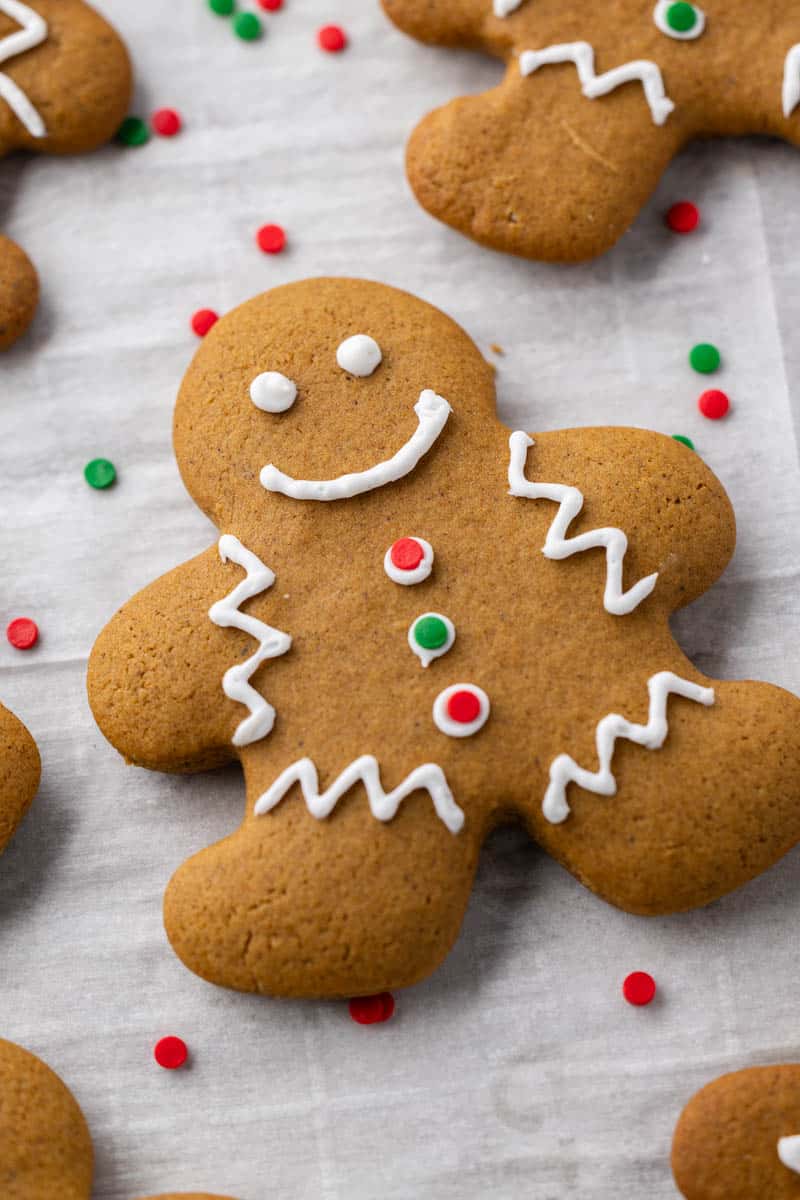
Ingredient Breakdown & Substitutions
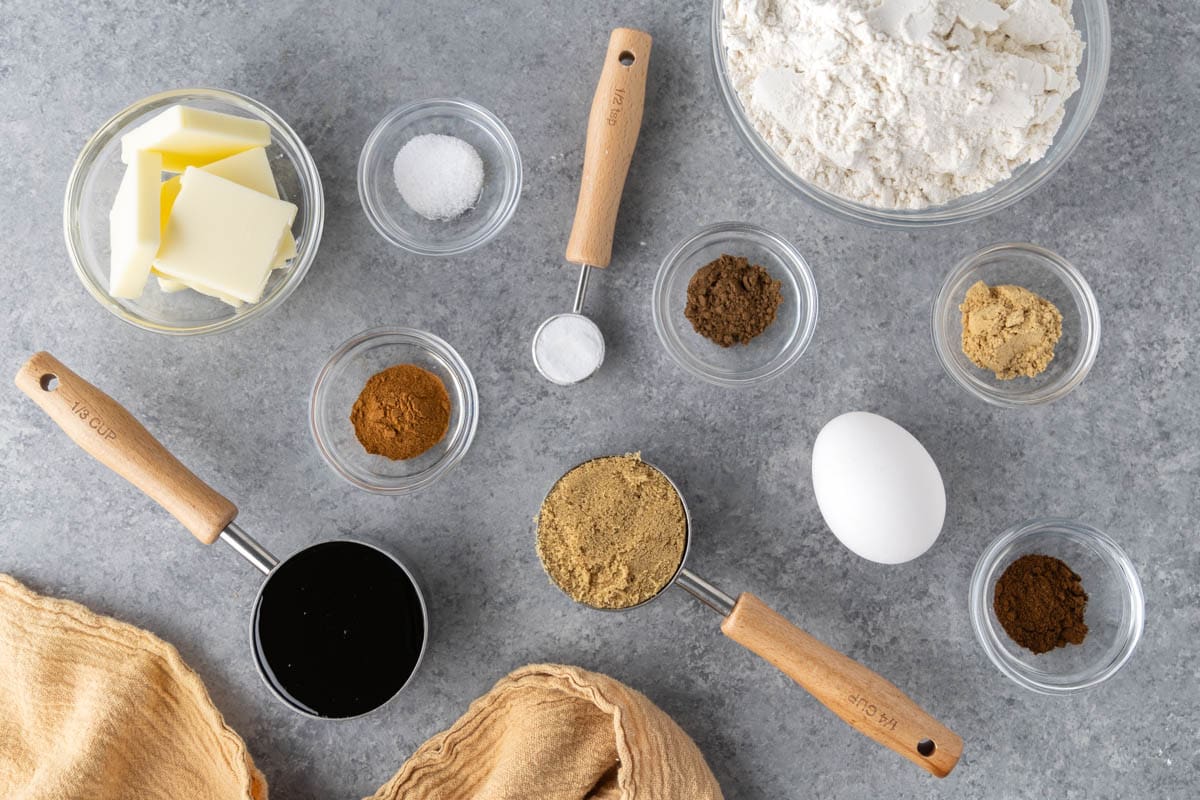
Salted Butter: Brings richness; unsalted butter with a pinch of salt can be substituted. Alternatively, a plant-based butter substitute can be used.
Brown Sugar: Adds moisture and a caramel-like flavor; white sugar is an alternative but will slightly change the taste.
Molasses: Key for classic gingerbread flavor. Can be substituted with either a 1:1 ratio of 5 tablespoons honey + 5 tablespoons brown sugar or 5 tablespoons dark corn syrup + 5 tablespoons maple syrup.
Eggs: Provide structure and richness. For an egg-free alternative, use 1 tablespoon of ground flaxseed mixed with 2 1/2 tablespoons of water per egg, or a commercial egg substitute.
Spices (Cinnamon, Ginger, Allspice, Cloves): These create the signature warm spice profile; adjust according to preference.
All-Purpose Flour: The base of the cookie; a gluten-free cup-for-cup blend can be used for dietary needs.
Using substitutions can affect final taste and texture.
Frequently Asked Questions
Yes, the dough can be made a day in advance and refrigerated.
Yes. Chilling your dough is an important step that will re-solidify the fat in the recipe and make your dough much easier to work with. You don’t want to skip this step!
Aim for a ¼ inch thickness for the best texture.
Lightly flouring your surface and rolling pin can help prevent sticking.
Any cookie cutter shape will work. Get creative!
They should be firm to the touch and slightly darker around the edges.
Absolutely, they freeze well for up to 3 months.
Did you Know?
Gingerbread has a rich history that dates back to medieval Europe. Originally, gingerbread was made from breadcrumbs, sweetened with honey, and spiced with ginger. Over time, as global trade introduced new spices and molasses, the recipe evolved into the beloved cookie we know today!
Visual Guide to Making Gingerbread Cookies
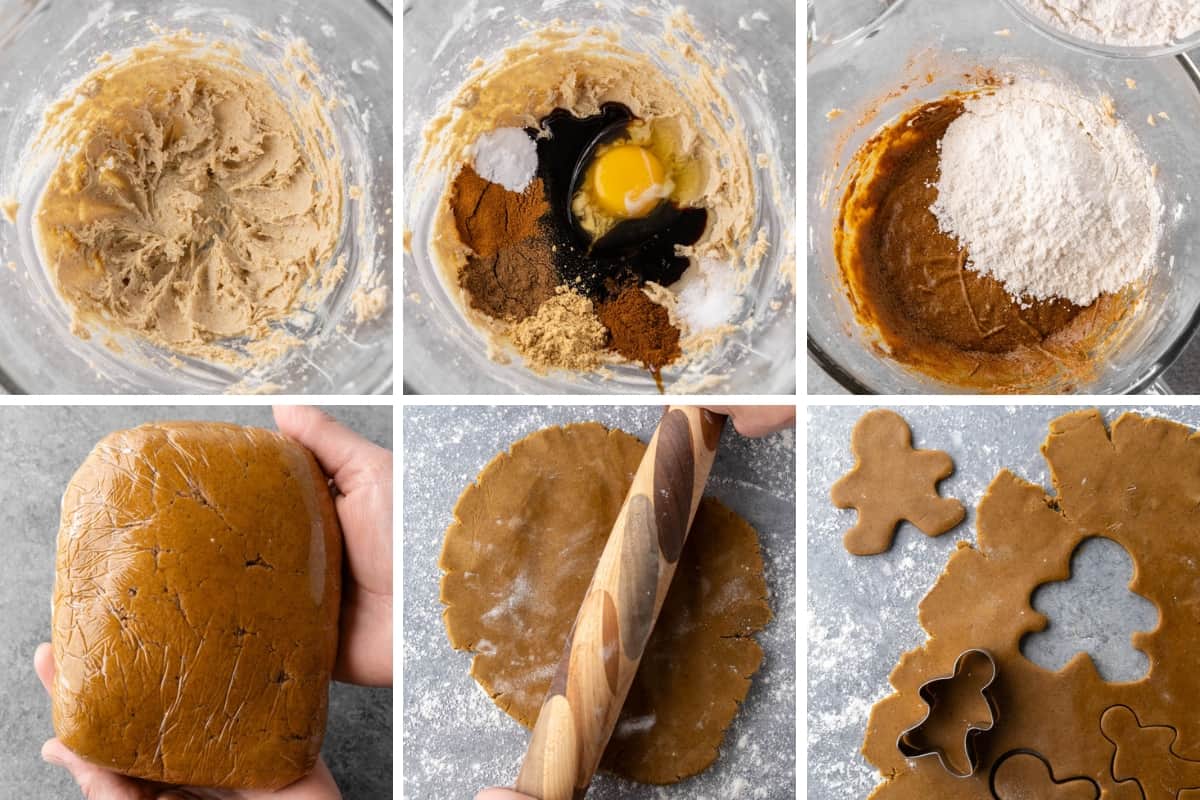
Decorating Ideas
Decorating gingerbread cookies is a classic holiday activity that adds a personal touch to your treats. Here’s a simplified guide to give your cookies a traditional and charming look:
Preparing for Decoration
- Royal Icing: Make a basic royal icing using powdered sugar, egg whites, and a few drops of lemon juice. The icing should be thick enough to hold its shape, but still easy to pipe.
- Piping Bag: A simple plastic piping bag or a zip-top bag with a small corner cut off will work for icing your cookies.
- Colored Icing (Optional): If desired, divide the icing into portions and add food coloring. Classic colors include red, green, and white.
Basic Decorating Steps
- Outline: Start by outlining the gingerbread cookies with a thin line of icing. This creates borders and sections on the cookie.
- Fill In: Fill the outlined areas with a slightly thinner icing to create a smooth surface. Use a toothpick to spread the icing evenly.
- Let It Dry: Allow the base layer of icing to dry completely before adding more details.
Traditional Details
- Faces and Buttons: Add simple facial features and buttons using small dots or lines of icing.
- Clothing Details: Create cuffs, collars, and belts on your gingerbread figures with thin lines of icing.
- Simple Patterns: Add stripes, dots, or zigzags for a festive touch.
Troubleshooting
- If your cookies are spreading too much, the dough might be too warm. Refrigerate it for an additional 20-30 minutes before rolling and cutting.
- In case the cookies turn out too soft or too crispy, adjust your baking time slightly during the next batch. Remember, ovens can vary.
- Cookies Too Hard: Avoid over-baking; they will harden as they cool.
Tips From the Chef
- Always soften your butter to room temperature for easier mixing.
- Refrigerate the dough to make it easier to handle and enhances flavors.
- Don’t overwork the dough; this can lead to tough cookies.
- Keep cut-outs a similar size and thickness for uniform cookies and baking.
- Keep decorations minimal to highlight the shape and flavor of the cookies.
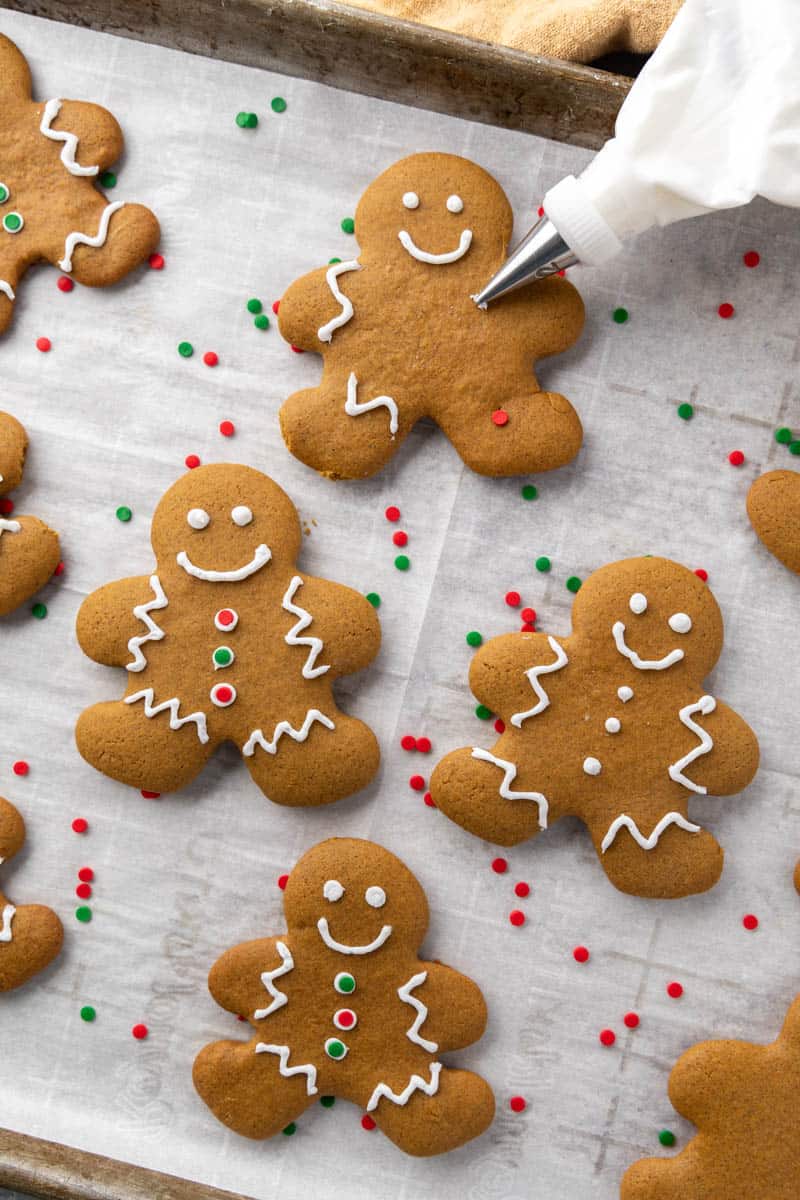
Storage & Freezing Instructions
Store your gingerbread cookies in an airtight container at room temperature for up to five days. If you wish to freeze them, place them in a single layer on a tray, freeze until solid, then transfer to a freezer bag. They can last up to three months in the freezer. To reheat, let them thaw at room temperature and, if desired, warm slightly in the oven for a few minutes.
More Favorite Holiday Treats
Watch the video below where Rachel will walk you through every step of this recipe. Sometimes it helps to have a visual, and we’ve always got you covered with our cooking show. You can find the complete collection of recipes on YouTube, Facebook Watch, or our Facebook Page, or right here on our website with their corresponding recipes.
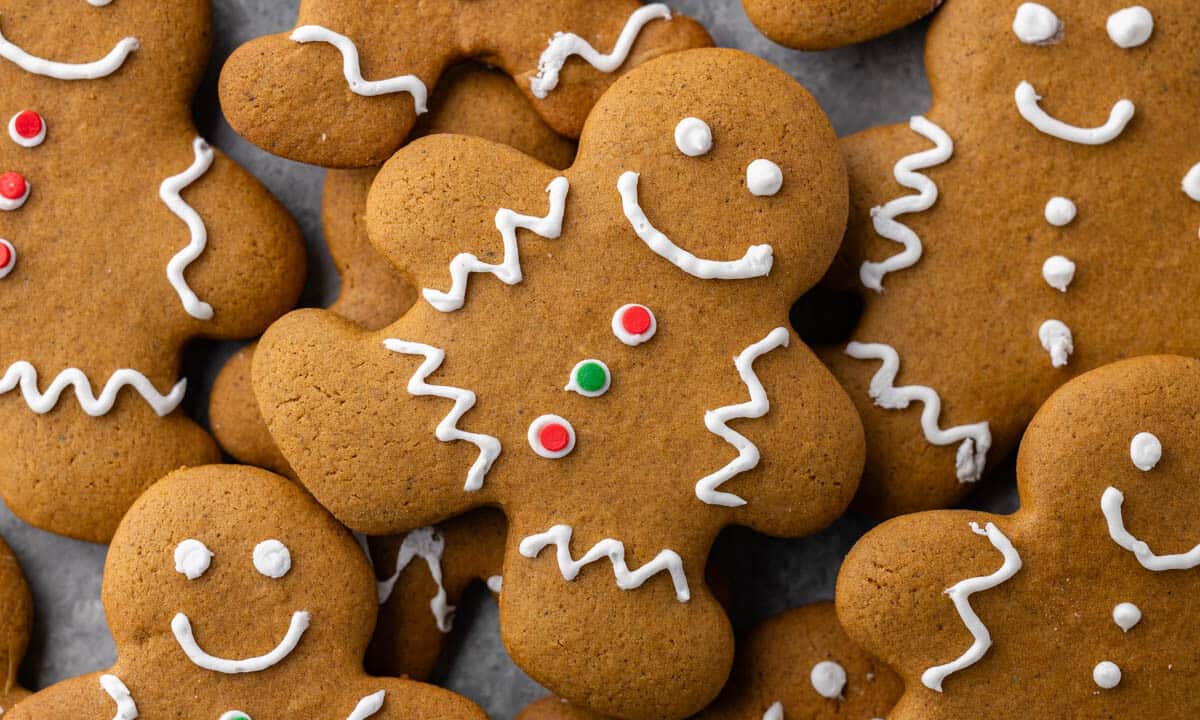
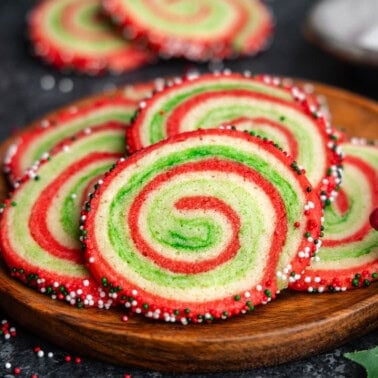
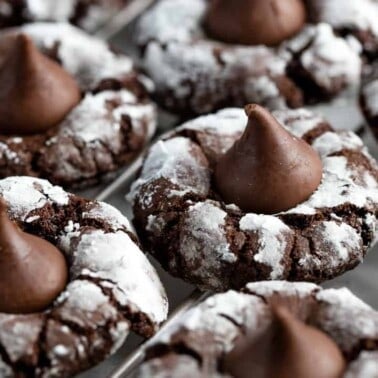

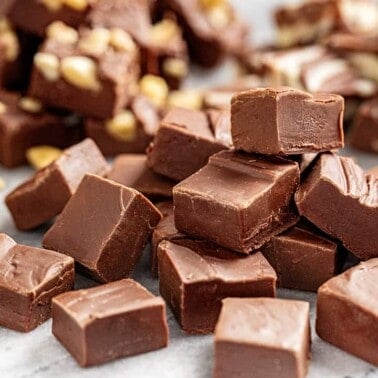
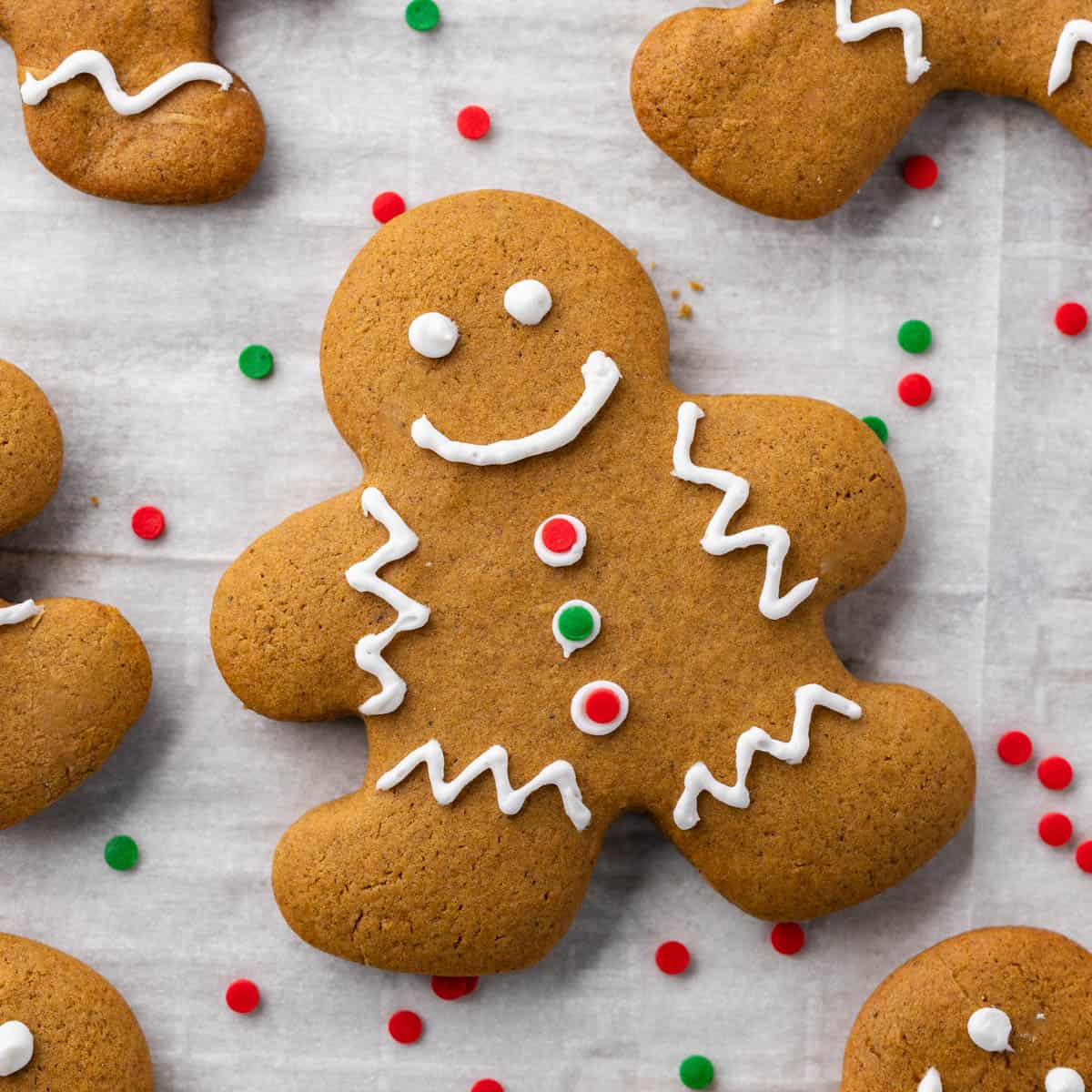
The absolute best gingerbread cookie recipe!!!!!!!!!!!! Very easy and the texture of the cookies are perfect!!!!! The only recipe I use for gingerbread cookies and make them all year, we love them!!! So fun to make with my daughters!!!! Thank you Rachel and team!!!
BEST recipe ever! My favorite!
Is this cookie too soft to use for a gingerbread house?
Yes, it is too soft. This one is definitely for eating. You need a much stiffer dough for a solid structure to build with.
Hello I just made the gingerbread cookie dough very soft will put in the fridge overnight. And make the cookies tomorrow after work. I also made your fudge it’s amazing because I could never make fudge it was too soft. Thanks for sharing. Angie
This is my go to gingerbread recipe. So easy and always comes out perfect. I gifted a batch to my daughter and her office mates because her cubicle decoration is a gingerbread house.